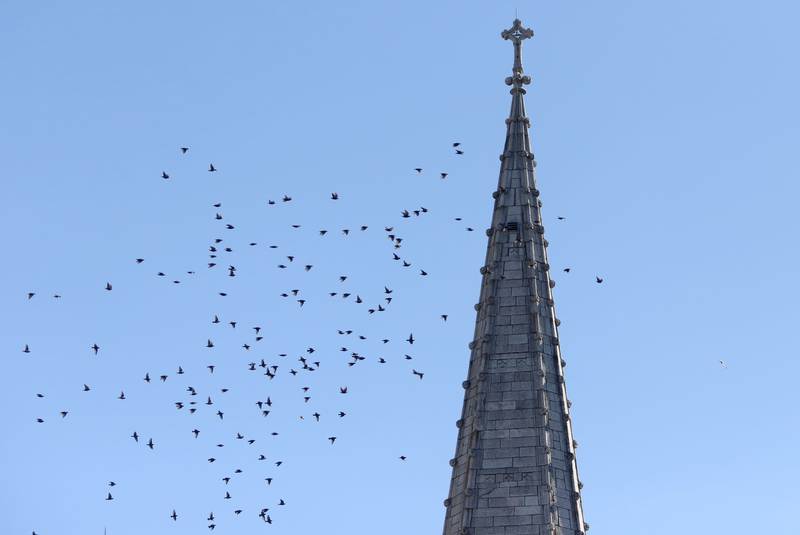HALIFAX (CANADA)
Chronicle Herald [Halifax, Nova Scotia, Canada]
March 13, 2021
By Francis Campbell
A class action by dozens of Nova Scotians who say they were sexually abused by Roman Catholic priests dating back to 1960 “is proceeding,” says the lawyer representing the plaintiffs.
“The court is going to advise us about potential trial dates,” said John McKiggan of McKiggan-Hebert law firm in Halifax, which filed the class action with the Nova Scotia Supreme Court in August 2018.
The class action was filed on behalf of Douglas Champagne and other sexual abuse survivors.
Champagne, according to the court filing, suffered lasting and permanent effects from sexual abuse at the hands of Father George Epoch while Epoch worked as a priest at the Canadian Martyrs Church in Halifax.
The class action says priests employed by the Halifax-Yarmouth archdiocese, which amalgamated the former dioceses of Halifax and Yarmouth in 2011, had for decades “sexually assaulted and battered Catholic worshippers who attended their parishes.”
Responsible for the spiritual guidance and care of the claimants, the lawsuit says priests developed a relationship of psychological intimacy with their victims that provided them the opportunity to “engage in acts of sexual assault and battery.”
Several of the abusive priests were criminally convicted but many others were sent off to a church-run treatment facility in Ontario and then placed back in archdiocesan parishes with no warning or notice to parishioners of the priests’ past actions, the class action claims.
The archdiocese or previous dioceses had sole authority to “appoint, train, supervise, reprimand and dismiss priests” but by failing to do so was negligent and in breach of a fiduciary duty to the victims of the alleged abuse, the class action maintains.

McKiggan said recently there are two steps to a class action. The first is to have the court decide if the plaintiffs can sue as a group. A certification court date to decide that had been set for January but McKiggan said the group and the archdiocese were able to reach an agreement and the class action has been certified.
“The next step is the common issues trial,” McKiggan said. “If the matter cannot be settled by negotiation and agreement then there has to be a trial and a judge gets to decide on the certified common issues.”
McKiggan said this week that a common issues trial date has yet to be set. McKiggan said the issues that have been certified as being common to all class group members are whether the archdiocese was negligent and whether the archdiocese owed a fiduciary duty to the plaintiffs.
McKiggan said the claim can be settled at any time up to trial if the parties are able to reach an agreement.
“You’d have to ask the archdiocese,” McKiggan said when asked about the likelihood of an agreement before trial.
A spokeswoman for the archdiocese said they “have no comment on the class action, as it is in process.”
McKiggan said the archdiocese has not conceded it was negligent.
He said the class action involves “everybody who was abused by a priest,” unless they opt out individually.
“There is no way to know for certain how many people were abused by priests, probably the party that knows best is the archdiocese because they are the ones that received the complaints and sent the priests for treatment when they were caught.”
McKiggan said there is no way to determine what the financial damages to the archdiocese could be if it concedes or is found to have been negligent and in breach of its fiduciary duties.
“It depends on how many potential claimants are out there and what happened to each person, because the value of each person’s claim is dependent on the circumstances of what happened to them and how it affected their life,” McKiggan said.
“The potential financial exposure isn’t something we can put a precise dollar value on right now.”
McKiggan said it would be reasonable to expect a settlement would exceed the $16-million compensation settlement reached in 2009 between neighbouring Antigonish diocese and more than 140 complainants in a sex abuse class action against diocesan priests.
